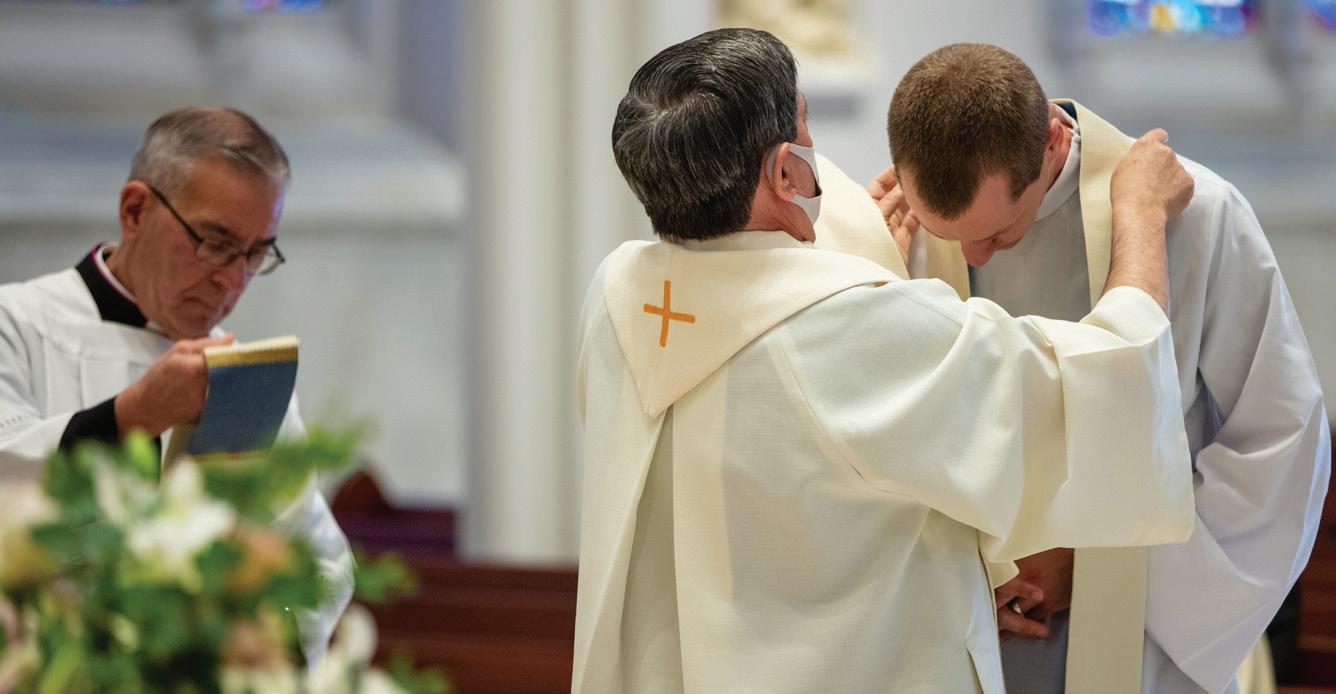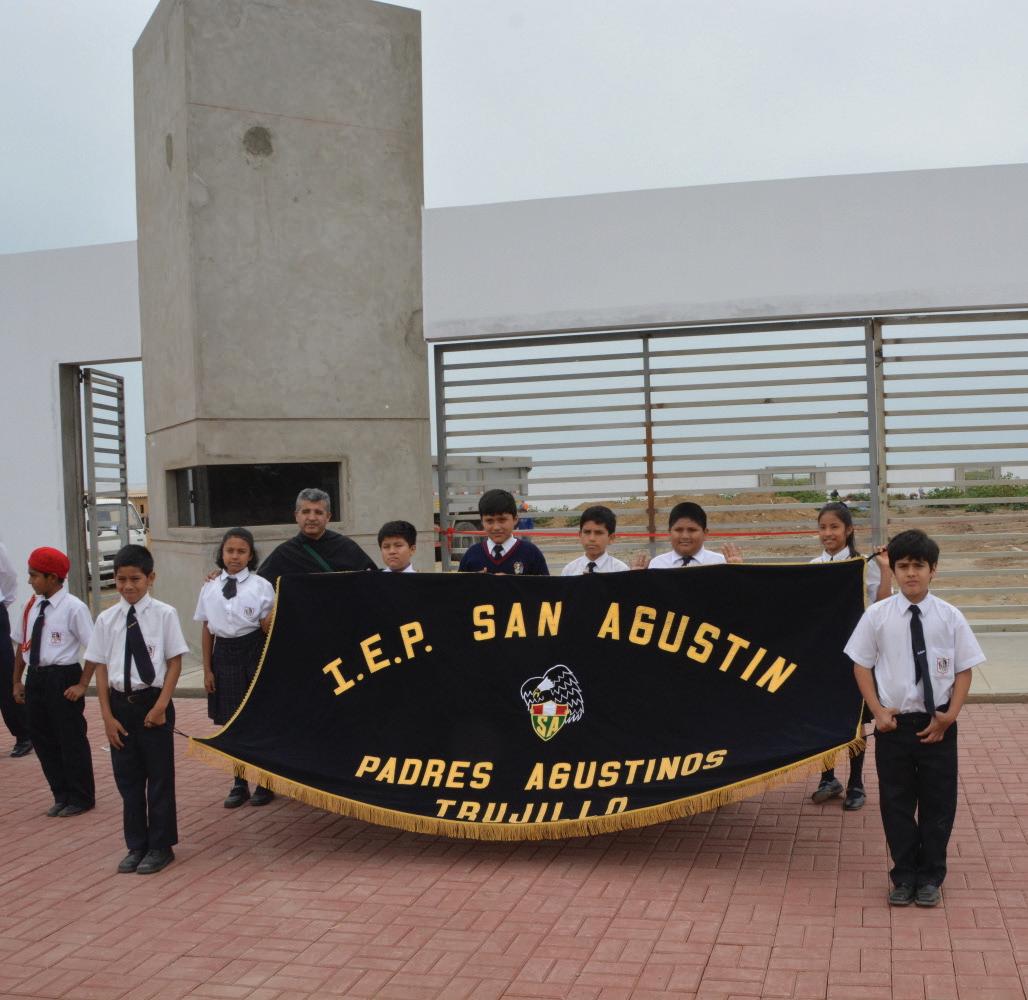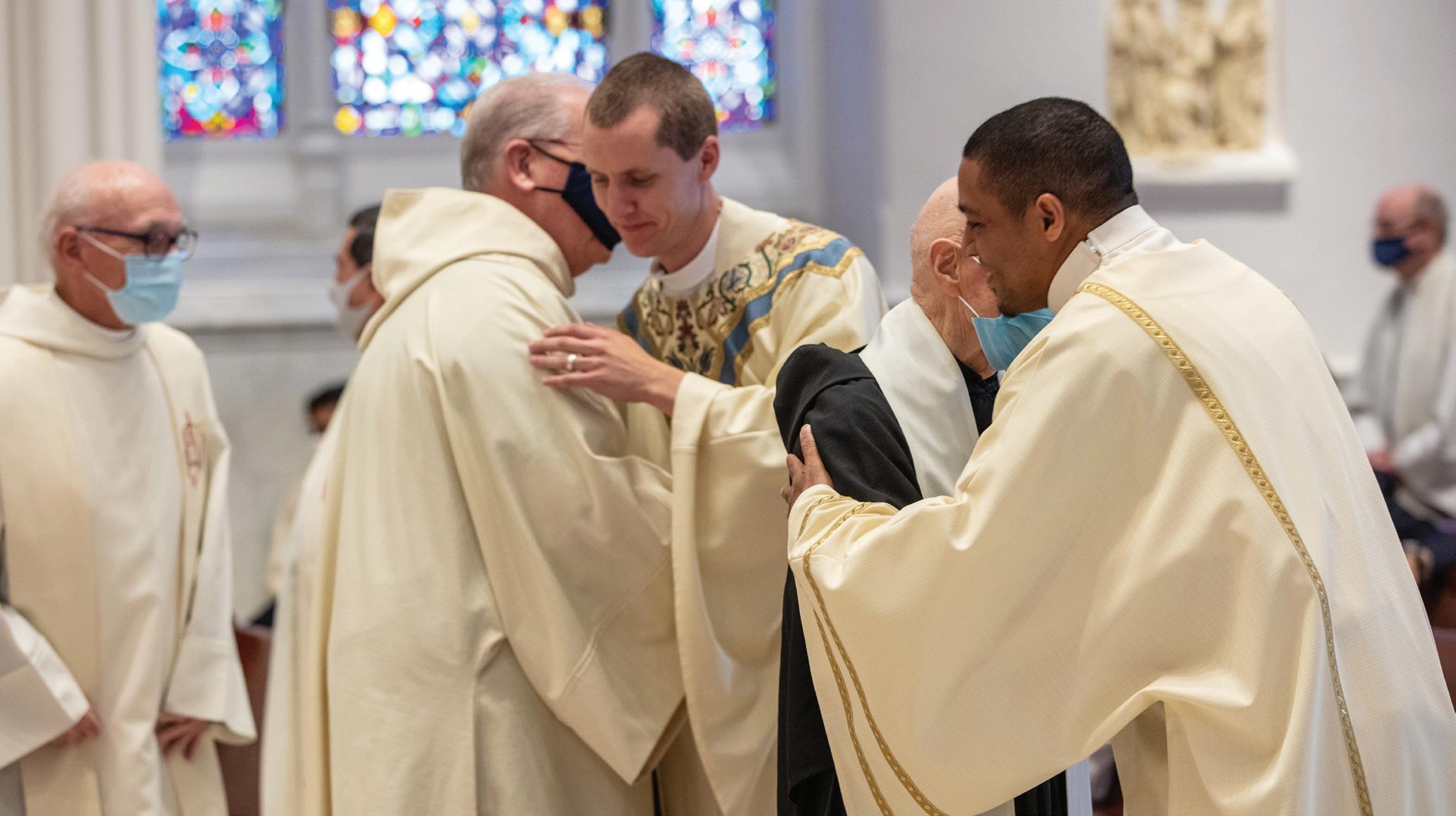
2 minute read
THE BERNARD HEEREY FAMILY FOUNDATION SUPPORTS ELDERLY FRIARS
Bernard Heerey Family Foundation: Assisting Elderly, Retired Augustinians
It is the sacred duty of our Augustinian Province to see that our retired and infirm friars receive the care they need in the twilight years of their lives. These men have lived lives of great purpose and have significantly impacted the lives of tens of thousands of men, women, and children in Chicagoland and elsewhere in the Midwest. It would be hard to live a more meaningful and impactful life.
Advertisement
This year, the Midwest Augustinians were blessed to receive an extraordinary grant of $53,000 from the Bernard Heerey Foundation of Chicago, to cover the annual costs for one retired friar in Assisted Living who had served in the city’s south side. Bernard Heerey, the namesake of the foundation, made significant impacts on the landscape of postwar Chicago, purchasing, assembling, and refurbishing major tracts along the city’s near north side. Mr. Heerey was also a devout Catholic who had a deep interest in the spiritual and physical welfare of the people of the city. Following his death in 1999, his assets were directed toward the establishment of a foundation with two principal directives: 1) offering scholarships and fellowships to worthy Chicago students; and 2) provide for the elderly who dedicated their lives to serving Chicago.
Mr. Nathaniel Gray, a friend of Bernard Heerey and trustee of the foundation, stated, “We believe that the men and women who work for the betterment of the city, while receiving little or no financial compensation, need to be provided for in their later years. Especially in organizations like the Augustinians, when they can become a large financial burdens for the whole community.” Our Province expresses our immense gratitude to the Bernard Heerey Foundation for their generous continued support.
followed by accompaniment, form the model of how to see God in one another's faces. This will lead us to fruitful engagement with one another that, hopefully, will lead our good intentions toward the common good. We shouldn’t have to wait for Eternity to gaze upon God’s face. I want to see his face in you, and in the indigenous person, person of color, the homeless, the marginalized, the immigrant. And I certainly hope you can see the face of God in me, otherwise I have failed. Yet, He’s been here the whole time. He reveals himself in the most unlikely person and circumstance. Keep your eyes open, my friends. Christ makes himself present to us in this act of thanksgiving on the altar. He calls us in communion with one another and then to be witnesses as light in darkness giving flavor to the bland taste of indifference.
What we have been offering and what we can still offer—namely, depth of faith, our welcoming and inviting posture, and, as the Prophet Isaiah describes in yesterday’s first reading, juicy rich food and pure choice wines—will enhance the social nature of our culture.
Our historical narratives may change but the Gospel narrative does not. Living in a fractured world as wounded people, Christ, nonetheless, accompanies US to be agents of healing, reconciliation and peace.
Works Referenced:
Carol Delaney, Columbus and the Quest for Jerusalem: How Religion Drove the
Voyages that Led to America. Free Press, 2011.
Matt Malone, S.J., “Columbus Day is a chance to acknowledge a nuanced history in a polarized world.” America Magazine, October, 2019.






